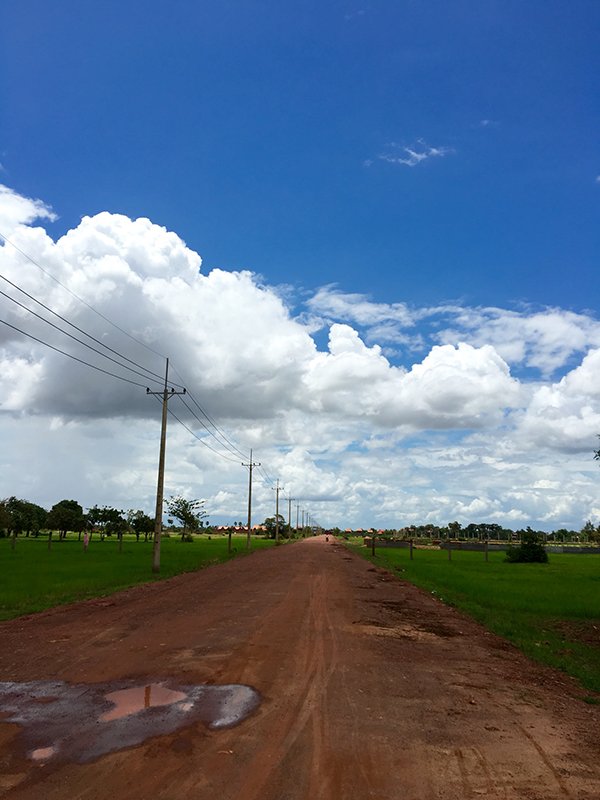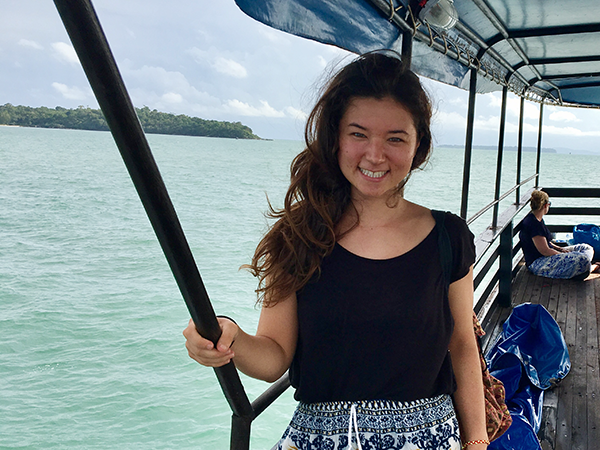Studying abroad is central to a liberal arts education, allowing students to experience culture and perspectives that differ from their own firsthand.
The Wise Wanderer scholarship was established to fund Liberal Arts Honors students traveling abroad, providing them with the opportunity for personal and academic development. The students selected receive $5,000 to organize and plan their trips personally, creating a budget and itinerary that reflects what they want to get out of the experience.
Alina Tonu, an Asian studies senior from Alvin, Texas, was one of two students awarded the scholarship for the summer of 2016. She visited the rural community of Siem Reap, Cambodia.

“I applied for the Wise Wanderer scholarship because I wanted to bring my background in Asian cultural studies together with my interest in anti-human trafficking work,” Tonu said. “My focus was to understand how cultural preservation and the arts could strengthen communities against exploitation.
“The scholarship funded my travels to Cambodia, where I volunteered with Honour Village Cambodia, a grassroots nonprofit that provides after-school care, English lessons and computer classes to children in rural communities vulnerable to exploitation,” Tonu continued. “I worked as an assistant English teacher alongside Khmer staff and other international volunteers.”

Before traveling, Tonu made sure to do her research on the history of the country and spent time traveling to historical sites once she was there, though they could be emotionally taxing.
“Part of my intention for this trip was to understand Cambodia’s current conditions and why its children are particularly vulnerable to exploitation,” Tonu said. “To do so, I studied the history of Cambodia’s recent past. Under the dictator Pol Pot, the Khmer Rouge murdered nearly two million of its own people in an attempt to ‘purify’ its population and return to an agrarian society. The regime targeted intellectuals and professionals, including doctors, teachers, public administrators and religious leaders.
“The result was a war-torn and impoverished country with little to no economic or social infrastructure left to rebuild itself,” Tonu explained. “The only time I wished I was not traveling alone during this trip was when I visited the genocide memorial sites in Phnom Penh.”
The closeness of the community in Siem Reap and Honour Village Cambodia was evident to Tonu. Her favorite moment came during a farewell party that the village threw for its yearlong international volunteers.
“The students DJ’d and the teachers led dances in the dining area,” Tonu said. “The school killed and roasted ducks for the celebration and served them next to mountains of French fries. We played and danced and ate for hours.”

When it comes to other students considering traveling abroad, Tonu advises, “Do it. And when you do it, spend as much time away from the university as you can. Talk to people who are not students, and don’t be afraid to travel on your own.”
Tonu’s experiences abroad showed her the nuances of Cambodian communities, and increased her interest in local organizing.
“I went to Cambodia to work with ‘vulnerable populations,’ understanding very little of what that actually meant,” Tonu said. “When I arrived at Honor Village Cambodia, I found a school full of loud, laughing, bright, kind, mischievous and sharp students. They played and fought and giggled and rebelled. I went expecting to see only poverty, and instead I found a community that took care of each other’s needs. I’m curious to learn more about the power of grassroots leadership.”
You can donate to Honour Village Combodia on their website here.
For more information about how liberal arts students can travel abroad, visit the Liberal Arts Frontiers study abroad page.
